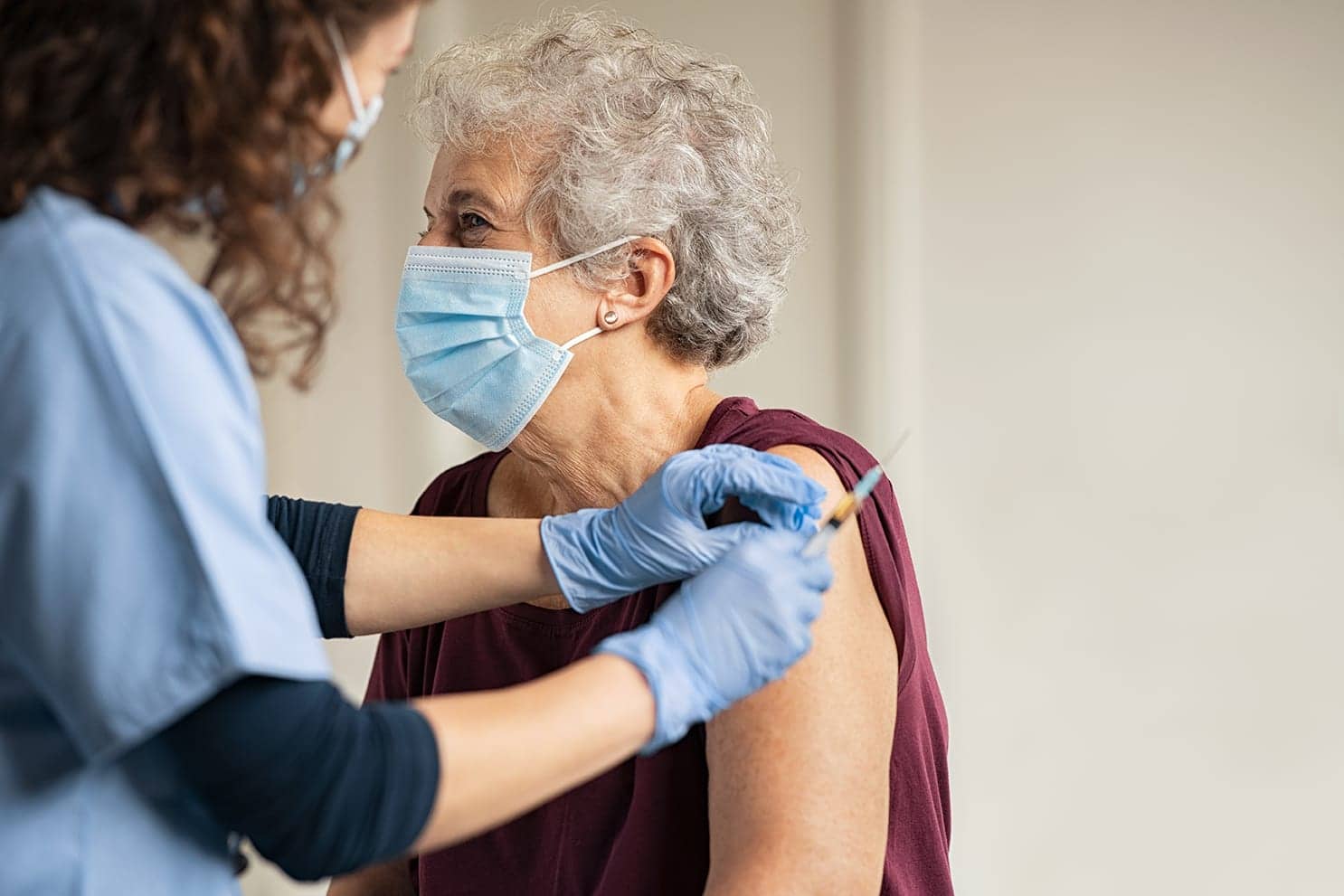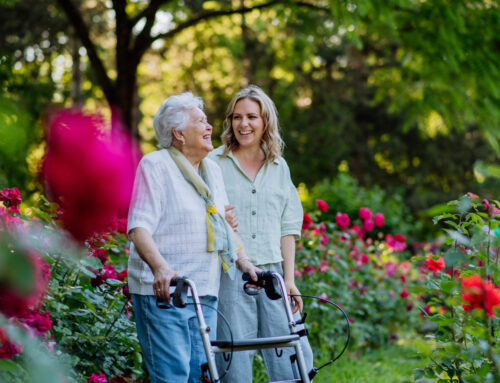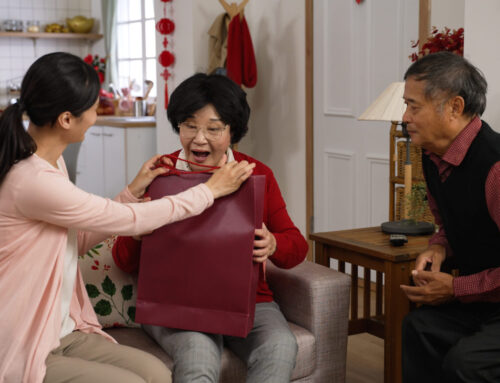Putting seniors first: the COVID-19 vaccine roll-out
The pandemic is still with us but we’re beginning to see the light flickering at the end of the tunnel. The roll-out of the COVID-19 vaccine is available now to those first in line – healthcare personnel and older adults who make their home in senior living communities.
Since the first U.S. case was confirmed in 2020, learning how best to fight back against the coronavirus has become the nation’s priority. According to the Centers for Disease Control and Prevention (CDC), the vaccine combined with other recommended methods, is our best bet yet.
An overview of the vaccine and its development
You may have heard that the first vaccines were established under an Emergency Use Authorization (EUA) from the U.S. Food & Drug Administration (FDA). If you’ve had any questions about the speed or safety in which the vaccines were developed, the process is rigorous.
The FDA released this Vaccine Fact Sheet which summarizes the journey from research to authorization.
Step 1: A vaccine manufacturer conducts laboratory research to develop a vaccine candidate.
Step 2: The results of research and testing in animals are submitted to the FDA before beginning human clinical trials, which are only permitted with the FDA’s written authorization.
Step 3: Human clinical trials are conducted to gain data on safety and effectiveness of the vaccine.
Step 4: The Data Safety Monitoring Board evaluates the data and advises the manufacturer whether criteria, as agreed to in advance with the FDA, has been met.
Step 5: Data is reviewed to determine whether the company’s scientists and technical experts believe the vaccine meets the FDA’s expectations for safety and effectiveness.
Step 6: With input from the FDA, the company decides whether and when to submit a request for EUA to the FDA.
Step 7: Scientists and physicians in the FDA’s Center for Biologics Evaluation and Research (CBER) evaluate the request.
Step 8: The FDA convenes a public meeting of its Vaccines and Related Biological Products Advisory Committee to discuss the data from clinical trials.
Step 9: Following the advisory committee meeting, CBER’s staff considers their input and continues the evaluation to determine whether the available safety, effectiveness and manufacturing data support authorization for use as a COVID-19 vaccine in the U.S.
Step 10: If the FDA determines all criteria have been met, including that the known and potential benefits outweigh the known and potential risks of the vaccine, they may authorize the vaccine for emergency use.
How the COVID-19 vaccine works
The effects of COVID-19 can be more severe for older adults, yet some seniors may worry about its safety. You won’t get COVID-19 from being vaccinated. None of the COVID-19 vaccines in use or being developed in the U.S. contain the live virus that causes the illness.
The vaccines are designed to teach your immune system how to recognize and fight the virus that causes COVID-19. It typically takes a few weeks for the body to build immunity after you’ve received the vaccination.
The side effects you may experience, if any, are expected to be mild and last only a few days. They may include fatigue, pain at the injection site, headaches, body aches, fever and rarely an allergic reaction.
Benefits of the COVID-19 vaccine for seniors and others
For seniors, the vaccine is so important as the illness can be much more serious for older adults. One of the bigger advantages for residents who make their home in senior living communities is that they are first in line to receive the vaccination. The CDC has provided the following information about additional benefits:
- The vaccines available in the U.S. have been shown to be highly effective in preventing COVID-19.
- It may help keep you from getting seriously ill if you do get COVID-19.
- If you’re vaccinated, the people around you may be protected from contracting the virus.
- The vaccine creates an antibody response without you having to experience sickness. Although getting COVID-19 may offer some natural protection or immunity, it’s not known how long this protection may last.
- The vaccine works with your immune system so you’ll be ready to fight the virus if you’re exposed.
Looking ahead to the future
The following are a few tips and comments from the experts to keep in mind as we make our way through the next stages of the pandemic:
- Get vaccinated
Dr. Anthony Fauci, the leading infectious-disease expert, states that the way back to normalcy is through vaccination. But he also says we need to continue to follow recommendations of wearing a mask, washing our hands and keeping socially distanced as long as necessary.
- Keep an eye on infection rates
Until a large percentage of people are vaccinated, there may still be restrictions. You’ll also want to consider the infection rate in your town, city or region when considering risk.
- Reshaping future behavior
When asked if he’ll shake hands again, Dr. Fauci said he wasn’t sure if he would but assumed someday others will. He believes people will now be more aware of how to protect themselves than they were before COVID-19.
- How long will we be wearing masks?
As the infection rate drops and there is herd immunity, Dr. Fauci states it will likely be a transition from wearing a mask all the time, to only in certain circumstances to possibly not at all.
Life at Tapestry Senior Living communities
Our residents and staff have or will soon be vaccinated, allowing us to take a big step in the right direction toward leaving COVID-19 behind.
Although it won’t happen overnight and we’ll need to proceed with caution even once we’ve been vaccinated, we look forward to once again seeing our residents coming together with family and friends and celebrating all that life has to offer.
Until then, we will continue to support and encourage each other as we make our way through these times.
If you or your family are considering senior living, we believe you’ll find everything you need to make your home with us, including our services, amenities and person-centered approach to each resident.
If you have any questions about our communities, COVID-19 and senior living or how Tapestry Senior Living is responding to COVID-19, please contact one of our advisors. Please read our COVID-19 FAQ for more information.






